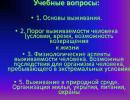Studying online. Turkish language levels. Learn Online Turkish Level Test
The process of learning Turkish is divided into 3 levels:
- Basic (temel)
- Medium (orta)
- Supreme (yüksek)
Each course contains 12 sections (ünite) including 1-2 lexical and 5-6 grammar topics. For each level, a special set of training materials developed by teachers and methodologists is offered:
- textbook (YENİ HİTİT Ders Kitabı),
- workbook(YENİ HİTİT Çalışma Kitabı),
- audio materials in Turkish, as well as additional materials.
Approximate number of academic hours for each level:
- Temel 1 A0 - A1 90 acc. h.
- Temel 2 A2 90 acc. h.
- Orta B1 160 acc. h.
- Yuksek 1 B2 90 ac.h
- Yuksek 2 C1 90 ac.h
If you have already studied Turkish before, you can come and study free test to determine the level of language proficiency.
The objective of each course is to develop the following active skills:
DİKTE: Skills in reproducing oral speech in writing.
OKUMA-ANLAMA: reading and writing comprehension skills.
DİNLEME-ANLAMA: Skills in understanding oral dialogic and monologue speech in Turkish.
KONUŞMA: Dialogic (conversation in a certain situation) and monologue (messages, reports) oral speech skills in Turkish.
YAZILI ANLATIM: the skills of expressing one's own thoughts and ideas in writing on a specific or free topic in Turkish.
These courses are also aimed at mastering grammar (DİLBİLGİSİ) and the formation of an active vocabulary(SÖZLÜ ANLATIM) student.
FOR EXAMPLE: At the end of the Temel1 A0-A1 course, you will be able to speak Turkish well enough to understand modern Turkish speech, read non-adapted texts and communicate in all sorts of situations. Your vocabulary at the end of this course will be about a thousand lexical units.
During the course you will learn: to compare people and objects in Turkish, to talk in Turkish about various activities; conduct a conversation in Turkish about the events that have taken place; discuss plans for the future, use the subjunctive mood in speech, it is enough to freely perceive authentic Turkish speech, read simple unadapted texts. And also: talk in Turkish about yourself, your home and family, look for a job, have an interview, write a resume, order food, bargain in the market, navigate the city, describe the places you have visited. Turkish culture: You will learn what Turks eat, what places they prefer, how they spend their holidays, what and where they buy, what they like to do in free time what movies are being watched. Get to know the famous singers and their creations, the customs and traditions of Turkey. The subject of discussion in each lesson is various aspects of modern Turkish culture: literature, cinema, society, lifestyle, family, etc.
Turkish is not very popular among the languages one chooses to learn. Basically, they prefer to study English, German, French or Italian. The difficulty in learning the Turkish language lies in the fact that it is difficult to find the necessary educational material. Therefore, they resort to the services of private tutors who conduct their classes in groups or individually with each student.
Today, online learning is very popular. Online courses are designed for those who are just starting to learn the basics of the language, as well as for those who have long studied the language, but forgot it over time. An online Turkish tutor conducts his lessons using Skype, while each student is selected an individual training program. The training program depends on the wishes and needs of the students. Turkish lessons via Skype cover three main stages. At the first stage, the grammar and vocabulary of the language are studied with the application of knowledge in practical classes. At the second stage, practical classes are held, in which conversation and vocabulary improve. At the third stage, classes are held on the perception of the language by ear. Learning Turkish online won't take long. After graduation, you will be able to speak freely on various topics: tell about yourself, your hobbies, occupation.
If you want to not only speak, but also watch movies, read newspapers and magazines, then in this case it would be rational to study the language more thoroughly.
For those who want to do this, there are five levels of in-depth study with an online Turkish tutor.
First level. Here they teach the very basics of communication skills. In grammar, attention is paid to verbs, their declensions, as well as the construction simple sentences and agreement of different forms of nouns.
Second level. It involves a more in-depth study of materials, while thematic studies begin. For example, the topics of theater and cinema are touched upon. The future tense and conditional moods appear in the grammar.
Third level. The main task of this level is the understanding of fluent speech. Here the topics for discussion become more complicated. These could be topics related to visiting a doctor or talking to a government official. There is also a study of modern literature, culture and traditions of the Turkish people.
Fourth level. At this stage of training, the acquired knowledge of the lexical and grammatical foundations of the language is deepened. And the preparation of students for the exams begins.
Fifth level. It is the most advanced and high quality level of education. At this level, nothing is taught anymore, here the knowledge gained is consolidated. Discuss topics that relate to all aspects modern life Turkey. Listeners can already speak fluently and have enough information for a free conversation, as well as for reading scientific and specific literature.
Today, the most popular online courses are courses that prepare for travel. An online Turkish tutor will be able to quickly prepare everyone.
Prepared material:
Elena Berezhnaya.
TÖMER exam is the logical conclusion of the Turkish language courses, which can be taken in 10 training centers in Turkey. However, it is not necessary to take such courses directly at TÖMER training centres. You can study Turkish at home on your own, in Turkish language courses in your hometown or study with a Turkish tutor via Skype, in the end, this is your own business. But you still have to take TÖMER in Turkey.
In order to pass the exam, you will need to pass a preliminary test, during which the TÖMER teacher will determine your level and the level of the exam to which you will be admitted. Such at first glance complexity, upon careful and calm consideration (you can even with a cup of Turkish coffee or a hookah), turns out to be an excellent advantage of organizing a Turkish language exam from other exams. Judge for yourself, often our ambitions are higher than our capabilities and we can say that we are ready to take the exam at the C1 level, although we ourselves barely reach B2. As a result, we have unnecessary unjustified and unfinished expenses, a sharp drop in self-esteem and the collapse of goals associated with successful delivery TOEFL , IELTS , DELE or any other language exam. Before TÖMER, a qualified specialist will soberly assess your capabilities. The head of the relevant TÖMER department then determines the date of your exam. Due to the fact that the Turkish language exams are held on certain days, it may be necessary to wait for this event for a couple of days. During this time, you can pay for the exam. If you are applying for a certificate (basic and middle levels), then you will have to shell out 200 Turkish liras if for a diploma ( highest level) - 350 of the same Turkish lira.
As for the levels of Turkish language proficiency, there are 3 of them, namely: temel, or, in our opinion, basic, orta - medium and yüksek - the highest.
The exam itself is traditionally divided into 5 parts:
- Reading. You get a text in Turkish and 25 test questions for it. When answering questions, you must demonstrate reading comprehension. For this demonstration to be successful, you must "guess" the answers to at least 15 questions.
- Sozlu anlatIm. In this task, the examiner receives the text and written versions of the questions, which, after reading the text, will be voiced by the examiner. You will have to verbally not only answer the questions posed, but also express your opinion on a particular issue raised in the text. The goal of this part for you will be the next 15 points out of 25 possible.
- KarsIlIklI konusma- another one oral part exam, but if in the previous part your skills of argumentation and construction of a monologue were tested, then here you and your partner (the same person taking the exam) will be asked to act out a certain dialogue on everyday topics. In this task, 15 points is the maximum, and your task is the minimum - 9 points.
- Dinleme or listening. You will be offered to listen to a recording and 25 test questions about what you have heard, if you manage to answer at least 15 of them, then this part of the exam succumbed to you.
- YazIlI anlatIm is the crown of the exam. You will be asked to write a short essay (about 100 words), where it is important not only to be grammatically and lexically correct, but also to follow the rules for constructing the text. The specific weight of this task is not so great, a maximum of 10 points, of which 6 is the minimum credit.
Thus, your task is to score at least 60% of the points, but you will not be able to compensate for poor writing with good grammar. The developers of TÖMER from the Ankara Metropolitan University made sure that your knowledge of the Turkish language was assessed as comprehensively as possible.
What distinguishes the Turkish language exam from all other language exams is that the test results are checked directly during it, and you can find out your result immediately after checking the essay.
And if everything worked out for you, then leave two of your photos in the examination center necessary for the document on passing the exam and go to wait.
You have to wait 2 weeks for the certificate (it is signed by the head of the TÖMER department where the exam was taken). But the diploma will have to wait a little longer - 2 months, although in reality it can be twice as long. This is due to the fact that such a document is signed personally by the rector of the university in Ankara. Receipt of the document is also associated with some inconvenience. TÖMER sends such documents only within Turkey, but it will not be possible to receive it by mail abroad. However, if you have friends, acquaintances or relatives in Turkey, they may well receive your document at their home address (if you indicate it) or pick it up in person at the center, this does not require any official documents. For the time being, while the documents are being drawn up, you receive a kind of certificate that you have passed such an exam.
More information about the exam, preparation materials and other useful information can be found on the dedicated TÖMER page on the Ankara University website.






